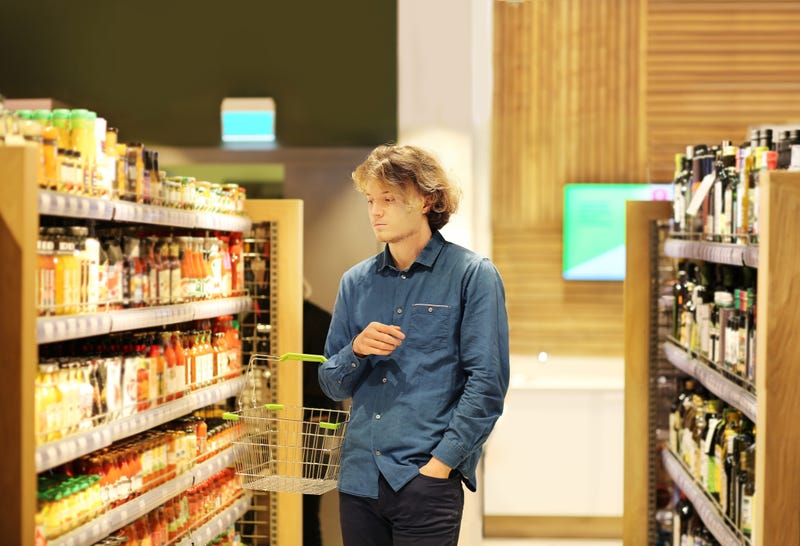
The majority of people, or 62%, in Gen Z – a group born from the late 1990s to the early 2010s – believe that their eating pattern is “wrong,” according to study results released this week.
A press release from 100-year-old global communications firm Ketchum said 63% of people in Gen Z feel pressure to change the world. Part of this pressure is related to their anxiety around food, the firm explained.
Ketchum based its findings on results from a 15-minute survey completed by “2,000 nationally representative U.S. children and adults,” age 13 and older this April.
“An overwhelming majority of Gen Z says that sustainability, animal welfare and LGBTQ rights are important factors when buying food, but they are not significant purchase drivers,” said the Ketchum press release. “Other priorities like taste, value and affordability trump issues that are important to them.”
While Gen Z feels pressure to spend based on their values, there have also been factors outside of their control as they have reached more financially independent years. These include the COVID-19 pandemic and subsequent supply chain issues, high inflation and interest rate hikes that, though aimed at taming inflation, make it harder for Americans to borrow money.
Per the Ketchum survey, 55% of Gen Zs “piece together snacks into a meal weekly, validating the popularity of the #girldinner,” trend on social media.
Even before the pandemic, the American Psychological Association said in 2019 that Gen Z was more likely than other generations to report that their mental health was fair or poor. This May, University of Louisville Health said that Gen Z adults have reported higher rates of anxiety, depression and distress than any other age group in the post-pandemic period.
“Due to the pandemic, many young people have had to adapt to virtual learning and socializing, which can lead to feelings of loneliness and disconnection from their peers,” it said. “Even before the pandemic, social isolation was a growing concern among young people, with studies showing that rates of loneliness and social isolation have been increasing over the past decade.”
In April 2021, The New York Times reported that adolescent eating disorders were also on the rise during the COVID-19 pandemic.
“They are exhausted and acting very differently from previous generations,” said Melissa Kinch, president of Ketchum’s Food Consultancy. “It has left them feeling insecure and negative about cooking and food. In particular, the contrast between what they say is important and how they spend their money is eye-opening.”
At the same time, research Ketchum released in 2020 indicated that Gen Z is a “foodie generation” and that many are “influential consumers seeking to change the food system,” that Ketchum calls “Food eVangelists.”
Last summer, another study released by Cassandra also found that Gen Z considers themselves the “foodie” generation. This was in part because they enjoy discovering new recipes on social media platforms such as TikTok.
“As their relationship with food is shifting, more Gen Zs are embracing a holistic attitude about food that transcends taste and calories and also factors in food morality, nutrition and its impact on mental health,” said a press release about that research.
Social media is both a resource for Gen Z and source of their anxiety around food, the Ketchum study found. It said 67% of Gen Zs worry they spend too much time on social media, and 58% believe that social media has a negative impact on their body image.
“They are also more likely than other generations to say that food makes them feel guilty, anxious, uncomfortable and overwhelmed,” said the study. “But Gen Zs remain optimistic, and most want food to make them happy, relaxed, healthy and confident.”
Results also showed that Gen Z is actively trying to change food habits. For example, 68% said they cook differently from their parents.
“If food companies and brands want to connect with Gen Z successfully, they should consider the impact of virtue signaling and tap into Gen Z’s quest for stability to show ways their products can bring joy,” said Kinch. “Scrolling through TikTok validates the innovation and creativity Gen Z brings to the category, and food companies who collaborate with them will increase brand love and build loyalty.”


